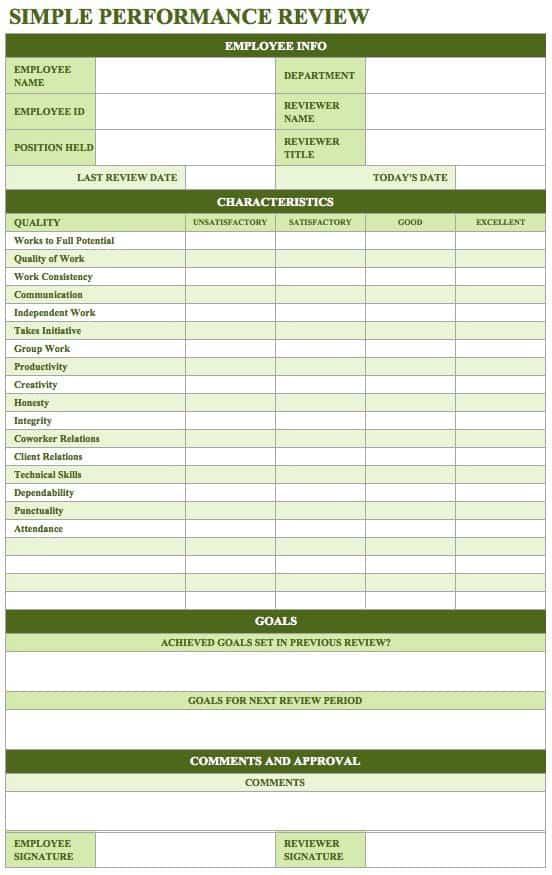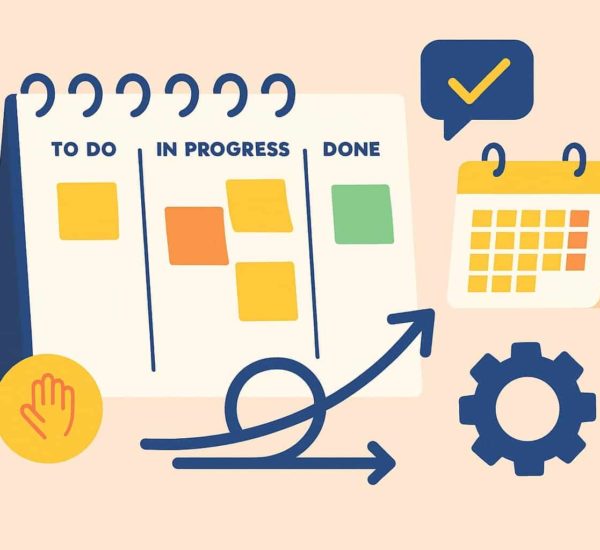Continuous and regular employee review is essential to assess the individual’s performance and that of the team. Thus, most organizations have an evaluation system in place, which helps gauge whether or not an employee is eligible for subsequent promotion and appraisal or not. An employee evaluation form is a perfect way to assess the same. Employee assessment is also an excellent way to know who are the best players who are lagging. Performance review comments help employees improve and channelize their talent better for the overall benefit of the organization.
In this blog, we will be talking about an employee evaluation form, its purpose and how important it is, templates to get you going, annual performance review, employee self-evaluation example, and much more.
What is an Employee Evaluation Review?
Employee evaluation review is the continuous and regular assessment of employees’ performance while on the job. This performance is not only in terms of professional work but also in ethics and contribution to the organization’s environment. In most cases, employee performance evaluation is conducted annually or bi-annually, with the supervisor’s assessment playing a significant role.
Employee evaluation form usually has two components; manager’s evaluation and employee self evaluation. While the former is the supervisor’s assessment of the employee’s work during the said period, the latter is the employee’s evaluation of how they performed. Both are extremely important to form an unbiased view and conduct a balanced performance evaluation. This further helps in understanding the monetary compensation in the form of appraisals, and designation change and promotion possibilities, if any.
Another essential part of employee evaluation is performance review comments. These comments are critical because they emphasize and expand on the evaluation aspect, and let the employees where they are doing well and where they are lagging. It has to be noted that positive feedback examples are not the same as performance review comments. However, it can be a part of performance review comments.
Employee assessments are essential. A perfectly framed employee evaluation form ensures that it is done in the best possible manner, for the organization to proceed with its periodical rewards and remunerations, accordingly.
Why is Employee Evaluation Important?
Regular assessment of employees is an important exercise. It helps employees know their strengths and weaknesses over a period, which further allows them to work on their productivity. Employee evaluation is an official way of doing it, coupled with incentives and remunerations.
Here is why employee evaluation is essential:
- Employee evaluation or employee reviews, in a way, remind the employees of what the job and their managers expect from them.
- An employee evaluation form serves as a written guide of employees’ strengths and weaknesses and managerial suggestions and comments. It serves as a continual reminder on where and how changes and improvements can be made.
- A combination of employee self evaluation and the manager’s evaluation is considered a perfect performance assessment. Self-evaluation is crucial because it is an exercise in introspection, which is also essential for analyzing an employee’s highs and lows.
Consistent performance reviews and evaluations are essential because they prevent the employees from being complacent and the managers from getting comfortable. It serves as a continuous check on performance, weeding out the non-performing resources and uplifting the deserving ones, which overall works well for the organizational goals.
What are the Steps of a Successful Employee Evaluation Program?

Employee evaluation is a continuous process. A standard format should be in place so that it is easier to evaluate each employee on those specific metrics. Here are all the steps that need to be adhered to if one wants to have a perfect employee evaluation program in place.
Set Performance Standards
It is vital to have Key Performance Indicators or KPIs in place for each employee, depending on the designation and department. These performance standards would serve as the benchmark against which their work and deliverance would be measured for employee evaluation.
Set Goals
Another essential metric to factor is that of goals. Employees should have KPIs in place, but they should also have specific goals to achieve, or their work would be futile. Every job or act has a specific purpose. Working mindlessly with no goal in mind should be discouraged. Instead, goal achievement should be rewarded and incentivized.
Assess Regularly
The employee evaluation form may be filled once in the set period, but the evaluation process should continue throughout that period. For instance, if the employee evaluation period is that of a year, the assessment of employees should happen throughout the year, the calculated result of which forms a part of the employee evaluation form at the end of the year. Ideally, there should be performance files for each employee, whether digital or print. This regular assessment of employees ensures no bias at the time of employee evaluation due to a sudden performance improvement.
Prepare Well
When it comes to employee evaluation, it is good to be prepared in advance, with all the details of an employee’s performance in hand. Ensure that you review all the documents and know-how to address the weakness and praise and play on the employee’s strengths. You should see the employee’s professional performance through and through before going ahead with the evaluation.
Do Not Get Personal
Whether you are a friend or not, keep the conversation professional. Also, remember that the conversation is about an employee’s performance over a certain period. It is in no way an assessment of an employee’s personality. Also, never compare employees. Remember, employee evaluation is an individual process.
Be Honest
The worst thing that you can do to your employee is by not being honest about performance. The best way to do it is by being direct and by cutting the chase. Be concise and correct in your meeting. Spell out the details well but do not sugarcoat or deviate from the primary goal, i.e. employee evaluation. Also, make your tone conversational. The employee evaluation discussion’s whole point is to ensure how the employee can be better than the current moment.
Be Specific
It is imperative to be specific and direct with your questions. These questions should be about what can be done to make the employee perform better, or even to remove a hurdle that they may be facing at work.
Be Continuous
Employee evaluation is a continuous process. Only, the addressal happens at a specific point of time or after a certain period. Make sure you are consistent with your feedback and follow up on the changes that may have been brought about to ensure the employee performs better.
Regular assessment of employees is essential, and so is creating a good employee evaluation form that can encompass all those mentioned above and be complete in itself. A good employee evaluation form will serve as a written reminder of all the discussions and help the manager and the employee work on their respective assessments.
How to End an Employee Evaluation Meeting?
Concluding an employee evaluation is perhaps one of the most important yet most ignored aspects of employee evaluation. You may know how to start a meeting and even its agenda, but it is imperative to close it on a good note. Many HR managers fail at this stage, and it may break the deal with an employee leaving scorned, which may lead to its own set of legal or public implications.
Remember, the key objective is to provide feedback, which should be a mix of both good and bad. An employee is rarely so bad that the evaluation has nothing good. Find out a way to strike a balance and approach the weaknesses. List out doable suggestions on how to work on their pitfalls, without being judgemental.
An employee evaluation form and the meeting after that should leave the employee hopeful. However, if things go downhill in an unusual worst-case scenario, we are also here with a few things that can help you with the legal implications.
Are There Any Legal Considerations to be Kept in Mind?
Yes, it is vital to keep certain aspects in mind while drafting any document. An employee evaluation form is no different. Performance evaluation can go in either direction; positive or negative. While the former is a happy occasion, the latter can be cause for hurt. How the employee perceives it should also be considered. Thus, it does not hurt to know the legal aspects so that when you create an employee evaluation form, you know what to include and what not.
Here are a few things to include:
- Keep periodical notes of individual employee performance throughout the year/appraisal period
- Ensure that you raise concerns when you see the red flags. That way, a negative appraisal or evaluation would not come as a shock
- Give your employees a chance to improve
- The most important aspect; document every single meeting where performance is discussed
Here are a few things to avoid:
- Steer clear of at-will employment which gives employers the right to terminate employment at any time. It increases distrust
- Do not ever discriminate between employees, even based on performance. Sure, point out the fallacies and give them a chance to improve, but do not mock them
- Do not make false promises of long-term employments and promotions, based on a single stellar performance
The entire point of conducting an employee evaluation is to make sure that the employees continuously improve. This, by extension, works towards improving team productivity and brings in returns to the organization. It should be an honest attempt, free from malice and prejudice of any kind.
Employee Evaluation Template
An employee evaluation form is the best way to document and consistently review the performance of employees. It is important to have key performance indicators, goals, and other details in place so that the evaluation happens in the best way possible.
A good employee evaluation form should have the following sections:
- Job description
- Key performance indicators
- Specific goals
- Manager’s evaluation
- Self evaluation
Here are some of the employee evaluation examples and templates to give you a better idea of how to create one for your organization.
Employee Evaluation Template #1
Evaluation for XYZ
Manager: ABC
Date: mm/dd/yyyy
Company: EFG
Goals:
You know your performance goals
You are aware of what to do to achieve your goals
Manager’s rating:
Self rating:
Communication:
You’ve been thorough in presenting your point of view during meetings
You apply the feedback that has been given
You are clear in your instructions and prompt with your communication
Manager’s rating:
Self rating:
Work ethics:
You are a good and consistent follower of good work ethics
You exceed the required expectations of the levels of productivity
Manager’s rating:
Self rating:
Learning:
You show immense potential with respect to change as per the environment
You are great at adapting and learning new skills
Manager’s rating:
Self rating:
Teamwork:
You assist team members when the need be and have helped them sail through tough moments
Manager’s rating:
Self rating:
Leadership:
Your task delegation is smooth and so is the way you ask for accountability
Your team looks up to you as an excellent role model
Manager’s rating:
Self rating:
Overall performance evaluation: XYZ has been an inevitable and invaluable part of the organization for the past year. It is our immense pleasure to give him a xx% raise along with a level up in the designation, after a discussion with the manager.
Employee Evaluation Template #2
This one is in a table form. Here is how you can create one. Simple, concise, and crisp, this type of employee evaluation form is the most popular and the easiest one.

Do you Need an Employee Evaluation Process?
Employee evaluation helps in assessing employees at regular intervals and ensures that they play to their strengths and work on their weaknesses. The absence of employee evaluation will only lead to complacency and the eventual downfall of individual performances, reflecting poorly on the organization.
How does employee evaluation work at your company? Do share with us at @HarmonizeHQ



